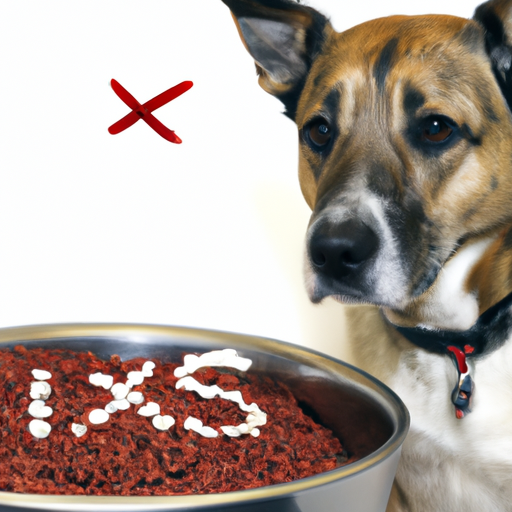“`markdown
Why Are Grains Bad for Dogs?
As a caregiver, you always want to provide the best for your furry friend. After all, your dog is not just a pet but a part of the family. You might have heard about the grain-free trend in the dog food industry and wondered whether you should jump on the bandwagon. Let’s explore why grains might be bad for your dog.
H2: Grains and Canine Allergies
Many dogs are allergic to grains, but the symptoms are often subtle and easily overlooked. You might notice your dog scratching more often, losing hair, or suffering from gastrointestinal issues like diarrhea or vomiting. If you see these signs, it could be an indication that your dog is allergic to grains.
- Rash or hives
- Excessive scratching
- Hair loss
- Vomiting
- Diarrhea
H2: Nutritional Value of Grains
Grains have long been used as filler in dog food because they are cheap and readily available. However, they provide little nutritional value for dogs. Dogs are carnivores by nature, and their bodies are designed to digest meat, not grains.
- Meat-based proteins: Dogs need proteins for muscle growth and repair. Meat-based proteins are superior to grain-based proteins because they contain all the essential amino acids dogs need.
- Grain-free diets: Grain-free diets often replace grains with vegetables and legumes, which are healthier and more easily digestible for dogs.
H2: The Impact of Grains on Dogs’ Digestive Systems
Grains are not easily digestible for dogs. They can lead to bloating, gas, and discomfort. Some grains, like corn and wheat, are even harder for dogs to digest than others.
| Grain | Difficulty to Digest |
|---|---|
| Corn | High |
| Wheat | High |
| Rice | Medium |
| Oats | Low |
H2: The Risk of Grain-Based Diets and Heart Disease
Recent studies have linked grain-based diets to a type of heart disease in dogs called dilated cardiomyopathy (DCM). While the research is not conclusive, it is enough to raise concerns about feeding dogs a diet high in grains.
H2: The Bottom Line
While not all grains are bad for all dogs, it is important to observe your dog and see how they react to grains. If your dog shows signs of allergies or discomfort, it might be time to consider switching to a grain-free diet.
FAQs
Why are grains used in dog food?
Grains are cheap and readily available, which makes them a cost-effective ingredient for pet food manufacturers.
Is rice bad for dogs?
Rice is easier for dogs to digest than other grains like corn or wheat. However, it is still less nutritionally beneficial than meat.
Are all dogs allergic to grains?
No, not all dogs are allergic to grains. However, many dogs do have grain sensitivities or allergies.
What are the symptoms of grain allergies in dogs?
Common symptoms include excessive scratching, hair loss, rashes, hives, vomiting, and diarrhea.
What is a good alternative to grains in dog food?
Vegetables and legumes are good alternatives to grains. They are more easily digestible and provide more nutritional value.
“`



